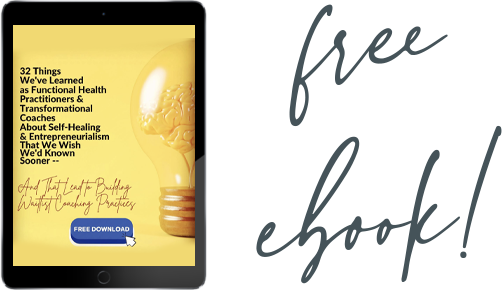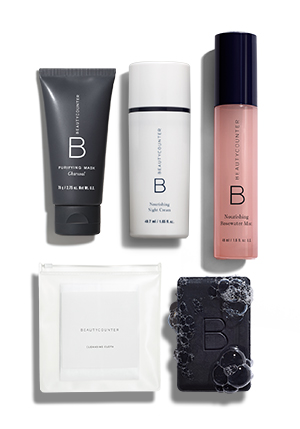14 September, 2024
Reactive to Everything? How to Manage Reactions to Foods, Supplements, and More

Have you or your clients ever felt overwhelmed by everything? Foods, supplements, noises, even people? You’re not alone. This scenario is all too familiar for many in today’s world, where chronic health issues are on the rise. Rather than seeking a quick fix, it’s crucial to understand that your body is sending you a clear message. When you’re hyper-reactive to everything, it’s a sign that your system is overloaded and needs a pause, not more input. This blog will guide you through a thoughtful approach to managing reactivity by emphasizing simplicity, balance, and holistic health basics.
The Growing Epidemic of Hyper-Reactivity
What’s Happening?
Many people today find themselves overreacting to everyday stimuli—whether it’s supplements, food, people, environments, or external noise. This growing epidemic is causing discomfort and disrupting lives.
Why It’s Becoming Common
Factors like environmental toxins, poor dietary habits, information overload, accumulated stress, and unresolved trauma contribute to this condition. Our modern lifestyle bombards us with constant stimuli, making it harder for our bodies to cope.
Related Blog Post: Unresolved Trauma: The Hidden Root Cause of Chronic Disease
The Wrong Approach to Fixing It
When faced with these symptoms, the instinct is often to run extensive tests and add more supplements to identify and “fix” the root causes. While this may have some merit, it’s rarely the best first step and often makes things much worse and more costly.
This is an example of a conversation I observed in a practitioner’s Facebook group. The practitioner was dealing with a client who was reactive to basic things like aloe. Yet, instead of the conversation about what foundations the client might need coaching around, the discussion focused on running more expensive labs that the client likely couldn’t even afford (and likely still won’t provide her with real solutions).

Understanding Your Body’s Messages
The Overloaded System
Think of your body as a computer with too many programs running. It gets glitchy and slow, right? Similarly, your body is telling you it’s overloaded and needs a break.
The Importance of Listening
Ignoring these signals and adding more inputs will only lead to more chaos. It’s crucial to listen to what your body is communicating and respond appropriately.
Time to Simplify
Instead of piling on more treatments, it’s time to scale back. Less is more when your system is overwhelmed.
When you’re hyper-reactive, your body is already sending clear signals that it’s overloaded. Adding more—whether supplements or new routines—can increase chaos rather than provide relief. The goal should be to STOP, REMOVE, SIMPLIFY, and GO BACK TO BASICS.
3 Steps to Managing Reactivity to Everything
Less is More: Reducing Supplements
The Latin term “tabula rasa” translates to “blank slate” in English.
One of the first steps in simplifying your health approach is to consider stopping all supplements or at least reducing them to a bare minimum. Overloading your body with various supplements can exacerbate your hyper-reactivity because supplements are just more information your body has to make sense of, making it essential to strip down to the basics.
Optimizing the World’s Best Healers
Instead of relying solely on supplements, turn to the world’s best natural healers. If these factors aren’t addressed, turning to expensive labs and supplements shouldn’t be the first step in any healing journey.
These include:
- Sunlight – Natural light helps regulate your sleep-wake cycle and boosts Vitamin D.
- Restorative Sleep – Quality (not just quantity) sleep is essential for recovery and overall health.
- Hydration – Proper hydration supports all bodily functions (which includes mineral balancing).
- Nutrition – Focus on whole, unprocessed foods.
- Mineral Balancing – Essential for cellular processes and brain function. Related Blog Post: Why Minerals Matter
- Movement – Regular physical activity helps manage stress, including gentle exercises such as yoga or stretching.
- Breath Work – Deep, mindful breathing can calm the nervous system.
- Nature Connection – Time in nature reduces stress and improves mood.
- Grounding – Physical connection with the Earth can balance your energy.
- Growth Mindset – A positive outlook fosters resilience.
- Emotional Regulation – Manage emotions through mindfulness.
- Self-Love – Practice self-care and kindness towards yourself.
- Connection – Build healthy relationships and community.
- Passions & Purpose – Engage in activities that bring joy.
- A Detoxing Lifestyle: Minimize exposure to toxins and live a life supporting the body’s natural detoxification ability.
- Healthy Boundaries – Protect your energy by setting limits.
- Play & Rest – Balance work with relaxation and fun.
- Safety – Create a safe environment for yourself both inside and out.
Implementing Hair Tissue Mineral Analysis (HTMA)

HTMA provides valuable insights into your body’s mineral levels, which are crucial for all cellular processes, but without a colossal lab fee. When interpreted through the lens of trauma, psychoneuroimmunology, and transformational medicine, HTMA can help act as a blueprint to support BOTH physiological processes and unresolved psychological issues to improve client outcomes.
Why Minerals Matter
Minerals catalyze just about every single process in the body at the cellular level — including brain neuroplasticity!
When they become deficient, imbalanced, and displaced by toxic elements, the body won’t work right, and other interventions will be less effective if effective!
HTMA Provides Data on Physical Factors
The HTMA provides a deep-level, and BIG-PICTURE look into how the body is functioning at the cellular level in terms of:
- Energy production
- Stress resilience
- Digestion
- Immune function
- Hormonal status
- Toxic burden
- Detoxification capacity
- Brain neuroplasticity
- And more!
How HTMA Reflects Psychological Issues
Mineral patterns in your HTMA report can reflect unresolved psychological issues. Mineral levels, how they are distributed, ratios between synergistic minerals, patterns between groups of minerals, and toxic elements are all heavily influenced by unresolved trauma and personality predispositions.
Because of this, the results mirror what’s going on in one’s psyche and subconscious body-mind system — and therefore, a GREAT basis for discussing this aspect of healing, which is the MOST important one regarding chronic issues.
Making Effective Lifestyle Changes
When interpreted skillfully by a well-trained practitioner, the results can be used as a springboard into…
Helping clients see and understand the TRUE REASONS for their challenges and what needs to be done to resolve them — versus playing whack-a-mole with specific symptoms and conditions.
Highly actionable lifestyle and habit-based steps to become one’s own BEST BADASS SELF-HEALER and optimize life.
If you find yourself overwhelmed and hyper-reactive to everything, it’s crucial to take a step back and simplify your approach to health. Focus on reducing the load on your system by stopping unnecessary supplements and optimizing natural healing methods. Remember, less is more. By going back to the basics, you can create a foundation for long-term health and well-being.
Consider booking a consultation to learn more about simplifying your health approach. You can also learn how to interpret and implement the HTMA test with clients through the lens of psychoneuroimmunology and neural rewiring inside our Holistic HTMA Pro certification course.















 80% of chronic dis-ease is rooted in stre
80% of chronic dis-ease is rooted in stre
 As
As 
